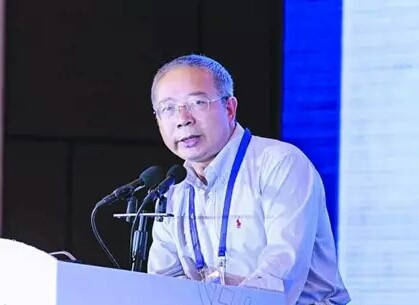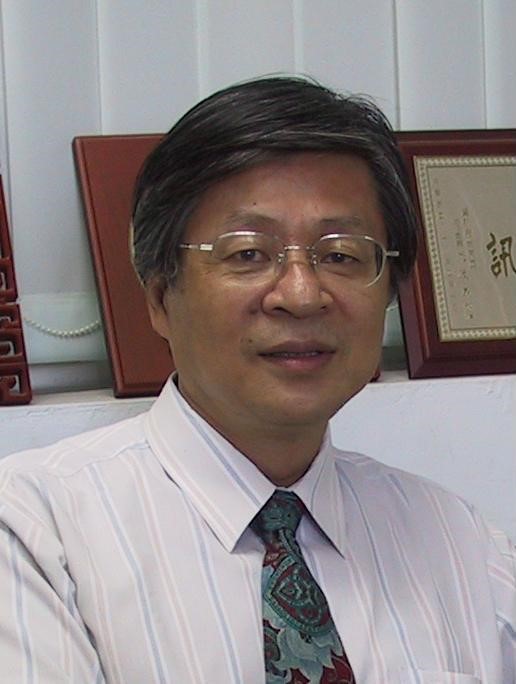Keynote Speech
-
Professor Jiuyong Li
The Professor of Computer Science at the School of Information Technology and Mathematical Science of the University of South Australia (UniSA). -
Professor Zhigeng Pan
The Professor of Computer Science at Hangzhou Normal University, China -
Professor James, Jhing-fa Wang
President, Tajen University, Taiwan & Chair Prof. National Cheng Kung University, Taiwan
| Professor Jiuyong Li |
|
|
|
| Topic: | Causal discovery and applications |
| Abstract: | Various machine learning methods make use of association relationships for classification and decision making. An association shows that two variables exhibit the same (or opposite) trend but may not indicate that the two variables have an inherent relationship. In other words, an association relationship can be spurious and/or conditional. Causal relationship discovery is to find the inherent relationships where the change of one variable leads to the change of another. The identification of casual relationships is crucial for understanding data and supports evidence based decision making. Causal discovery is a central task for science, health, economy and nearly all areas of studies. In this talk, I will discuss our work in the area and applications. |
| Biography: | Dr Jiuyong Li is a Professor and an Associate Head of School at the School of Information Technology and Mathematical Sciences of University of South Australia. He leads the Data Analytics Group in the School. His main research interests are in data mining, bioinformatics, and data privacy. His research work has been supported by Australian Research Council and Cooperative Research Centre for many years. He has published more than 100 papers, mostly in leading journals and conferences in the areas. He is a member of the Australian Computer Society National Committee for Artificial Intelligence. He has been a chair (or a PC chair) of multiple Australasian Data Mining and Artificial Intelligence conferences and actively serving PC (and senior PC) member for many international conferences in data mining. He has received senior visiting fellowships from Nokia Foundation, the Australian Academy of Science, and Japan Society of Promotion of Science. |
Professor Zhigeng Pan |
|
|
|
| Topic: | The Application of VR and HCI to Virtual Experiments |
| Abstract: | These years, Virtual Reality (VR) and Human-Computer Interaction (HCI) have been widely applied in various fields, such as education, entertainment, training, CAD/CAM, culture heritage, sports, and et al. In this talk, I will give a brief introduction of VR and HCI, and discuss the main research achievements in our group, then will explore the possibility for applying these methods or algorithms to experiment simulation, which is supported by the National Key R&D project. |
| Biography: | Zhigeng Pan Vice President, China Society of Image and Graphics Depute Director, Technical Committee on VR and Visualization of CCF Director, Digital Media and HCI Research Center, Hangzhou Normal University. Director, Institute of VR Research in Industry, Guangdong Province, China He got his Ph.D degree in 1993, and he became a full professor in Zhejiang University in 1996 because of his excellent academic performance. He has published more than 100 technical papers on important journals (such as PAMI, TVCG, IEEE Multimedia,..) and conferences (such as ACM Multimedia, IEEE VR, et al ). He is a member of IEEE, ACM SIGGRAPH. His research interests include VR and HCI. Currently, he is the Editor-in-Chief of "Transactions on Edutainment". He is the program co-chair of CASA’2011, SIGGRAPH Asia 2011(Sketches and Posters), IEEE VR 2013,SIGGRAPH Asia’2016(Symposium on Education), and the conference co-chair of VRCAI’2012/ VRCAI’2013/VRCAI’2015/CW’2016/Edutainment 2018. |
Professor James, Jhing-fa Wang |
|
|
|
| Topic: | Orange Technology and AI Robot |
| Abstract: | The first ever World Happiness Report has been published on April 1, 2012 by the United Nations, it reflects a new worldwide demand for more attention to happiness as criteria for government policy. This also calls upon science and technology in both natural and social domains to be developed for promoting a happy and healthy lifestyle in our modern society. To meet such a world trend, the Orange Technology research has been first proposed in National Cheng Kung University in Taiwan in 2008. The Orange Technology refers to a newly evolved interdisciplinary research area for integration and innovation of health, happiness, and care technologies. The research scope includes computer science, electrical engineering, biomedical engineering, psychological/physiological science, cognitive science, and social science. The representative color of Orange Technology originates from a harmonic fusion of red (representing brightness of health and happiness) and yellow (representing warming care). Instead of emphasizing the relations between environments and humans proposed by green technology, the objective of Orange Technology will more emphasize on humanity technology and explore the more innovative technologies to bring more health, happiness, warming care, and more mental wellness to the society. Concerning about AI Robot, Recent development of AI robot will be first discussed. For spoken dialog system or Chatbot system, we will first discuss the ten challenges in Highly-Interactive Dialog Systems, then we will survey some current top Chabot Building Platforms such as google AI-API, IBM Watson and Microsoft Bot Framework etc. Finally, we will propose a new creative platform design for highly interactive Spoken Dialogue system and compare to the existing Chatbot platform. In summary, the outline of this talk is shown below:
|
| Biography: | Prof. Jhing-Fa Wang is currently the President in Tajen University, Chair & Distinguished Professor in the Department of Electrical Engineering, National Cheng Kung University (NCKU). He got his bachelor and master degree from NCKU in Taiwan and Ph. D. from Stevens Institute of Technology USA in 1973, 1979 and 1983 respectively. He is the formal chair of IEEE Tainan Section in 2005-2009, the Coordinator of Section/Chapter, IEEE Region 10 in 2011-2012 & the Industry Liaison-Coordinater of IEEE Region 10 in 2009-2011. He was elected as IEEE Fellow in 1999 for his contribution on: "Hardware and Software Co-design on Speech Signal Processing", He was also the general Chair of ISCAS 2009. He received Outstanding Research Awards and Outstanding Researcher Award from National Science Council in 1990, 1995, 1997, and 2006 respectively. He also received Outstanding Industrial Awards from ACER and Institute of Information Industry and the Outstanding Professor Award from Chinese Engineer Association, Taiwan in 1991 and 1996 respectively. He also received the culture service award from Ministry of Education, Taiwan in 2008, Distinguished Scholar Award of KT Li from NCKU in 2009, IEEE Tainan Section Best Service Award in 2011, Innovation Education Award in 2013 Seoul International Invention Fair & special award from 2017 Kuwait International Invention Fair. Prof. Wang was also invited to give the Keynote Speeches in PACLIC 12 in Singapore, 1998, UWN 2005 in Taipei, WirlessCom 2005 in Hawaii, IIH-MSP 2006 in Pasadena, USA, ISM 2007 in Taichung, PCM 2008 in Tainan, 2011 ICAST in Dalian, China, 2011 ICSPCC in Xi'an, China, Keer 2012 in Penghu, Taiwan, HIS 2017 in Moscow Region, Russia, ICOT 2015 & ICOT 2016 & ICOT 2017 in Hong kong & Australia & Singapore respectively. He also served as an associate editor on IEEE Transactions on Neural Network and IEEE Transactions on VLSI System and Editor in Chief on International Journal of Chinese Engineering from 1995 to 2000. Prof. Wang's research area is mainly on multimedia signal processing including speech signal processing, image processing, VLSI system design and AI robots. Concerning about the publication, he has published about one hundred & forty journal papers on IEEE, SIAM, IEICE, IEE and about three hundreds international conference papers since 1983. Prof. Wang recently has explored the research on Orange Technology. Orange Technology refers to a newly evolved interdisciplinary research area for integration and innovation of health, happiness, and care technologies. The objective of Orange Technology is to bring more health, happiness and warming care to the society. |